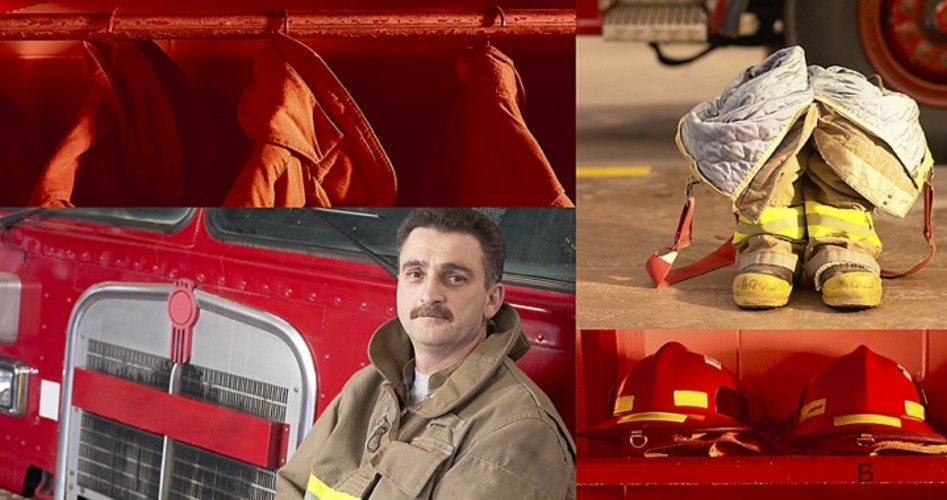
Volunteer fire departments, many already struggling to get by on tight budgets, may soon find that they must forgo equipment upgrades and other necessities in order to buy health insurance for their firefighters, depending on how the Internal Revenue Service (IRS) interprets ObamaCare’s employer mandate. The scenario has alarmed fire departments across the nation, which have pleaded with the IRS to treat volunteers as volunteers, not employees. It has also attracted the attention of at least one congressman, who has vowed to introduce legislation exempting volunteer fire companies from the employer mandate if the IRS does not announce that it will interpret the healthcare law in such a fashion.
The employer mandate requires employers with 50 or more full-time employees to offer affordable health insurance to these employees or pay a fine for each employee who instead buys insurance on an exchange. The law defines “full-time” as working 30 or more hours per week.
One might think that volunteer firefighters, by definition, would not be considered employees, and thus their fire companies would be exempt from the employer mandate. In Washington, however, reason seldom prevails. Thus, while the Labor Department considers volunteer firefighters non-employees, the IRS does not. The agency’s website states:
Generally, tax laws apply to firefighters in the same manner as for other types of workers. It does not matter whether firefighters are termed “volunteers,” are considered employees, or are identified by any other name, if the work they do is subject to the will and control of the payer, under the common-law rules, they are employees for Federal tax purposes.
Other details complicate matters even further.
“Central to the concerns from the volunteer firefighter community,” reported the Harrisburg, Pennsylvania, Patriot-News, “is the lack of clarity in the law as to how volunteer companies are identified — whether as individual, small companies or part of larger county or regional companies, or even the local municipal or borough governments that provide the bulk of appropriations that fund them.”
“You may be in a town where there are five different companies that make up the fire department but those have separate federal id numbers,” Pennsylvania state fire commissioner and local fire chief Edward Mann told the newspaper. “Do you count only people in those stations separately or do we have to count all the people between all five stations as the total?”
Then there’s the matter of what constitutes work that must be counted toward the 30-hours-per-week definition of a full-time employee. Obviously, time spent responding to calls would count, though as Mann told the Patriot-News, “When you are a volunteer fire company you have no control of when you have calls.” But what about other times when volunteers are on duty but not putting out fires?
“How exactly would they total up hours on duty for volunteers?” Rep. Lou Barletta (R-Pa.) inquired in a press release. “Does it mean when a volunteer is wearing a beeper or carrying a fire department cell phone? Does it include downtime at the station house? Listening to a scanner? These are all legitimate questions raised since Obamacare has been forced on Americans.”
Barletta is leading the charge in Congress to get the IRS to exempt volunteer fire departments from the employer mandate, and with good reason: 97 percent of Keystone State departments are either fully or mostly volunteer, according to the 2012 National Fire Department Census. Nationwide, 87 percent of fire departments are either completely or mostly volunteer.
“Forcing volunteer fire companies to comply with the Shared Responsibility Provision [i.e., the employer mandate] will not extend health insurance to the uninsured,” Barletta wrote in a letter to acting IRS commissioner Daniel Werfel. “Rather it will close firehouses and place communities at risk.”
“Furthermore,” he pointed out, “subjecting volunteer fire companies to the Shared Responsibility Provision may force them to eliminate volunteers in order to avoid classification as a large employer.”
Barletta asked the IRS “to clarify that nominally compensated volunteer emergency responders are non-employees of the agencies they serve under the” employer mandate. “This could,” he argued, “be achieved by utilizing existing language in the Fair Labor Standards Act (FLSA) and Internal Revenue Code (IRC) that allow for individuals to receive ‘… reasonable benefits and nominal fee(s) …’ while still being considered volunteers.”
Whether the congressmen will fare any better than the many firefighters’ associations and local fire companies who have written the IRS about the employer mandate remains to be seen. If the agency stalls, however, Barletta has one recourse that the firefighters don’t: He told the Patriot-News “that if the IRS did not respond to the concerns by this week, he planned to introduce legislation that would clear up the matter.”
Fire departments can afford to wait a little while for answers to their questions because the Obama administration unilaterally delayed the employer mandate for a year. But no one likes uncertainty, and it won’t be long before fire companies and the municipalities that oversee them have to start budgeting for 2015.
“I can tell you right now we can’t afford it [health insurance for volunteers],” Mann told the Patriot-News. “While a volunteer fire department may not have a payroll, the rest of it isn’t free. The only part that is free is the labor.”
The potential application of the employer mandate to volunteer fire companies is “another unintended consequence of a law passed that some people thought was terrific,” he added — one that will make Americans less safe.
As Barletta put it in his statement, “If Obamacare is the law of the land, then so is the law of unintended consequences, and there seems to be a lot of that going around these days. Just like the flu.”



